#Single Review: Lauren Ann Bite
Explore tagged Tumblr posts
Text
Lauren Ann is a young and rising, Belfast-based indie rock singer/songwriter and musician, whose sound and approach pairs garage rock exuberance, grunge dynamics and a dreamy pop edge, inspired by listening to Nirvana, Pixies, The Cure and others. The Northern Irish singer/songwriter and musician signed to Faction Music the same day she completed high school, a massive achievement for the young artist, who only started writing songs a year prior. And with a handful of singles, the Belfast-based artist has landed opening slots with acts like Tom Grennan, NewDad, Twin Atlantic and the rapidly rising SPRINTS. She has also made the rounds of the global festival circuit, playing sets at SXSW, Ireland Music Week, Output Festival, and Stendhal Festival. This year will be a big year for the Northern Irish artist: Her forthcoming EP is a concept effort with each song inspired by each of the seven deadly sins. “In a way I’ve created a character or alter ego who experiences all of the sins in some way,” Lauren Ann explains. “Some of the songs are also about the different types of people I have met in my own life. I feel like everyone has encountered negative feelings of greed, wrath, pride etc. at some point in their life.” The EP’s latest single “Bite” slickly produced guitar rock anthem featuring glistening and atmospheric synths, thunderous drumming, fuzzy power chords and a throbbing bass line with Lauren Ann’s self assured, in-your-face delivery and enormous shout-along-worthy hooks and choruses. While seemingly channeling Siamese Dream-era Smashing Pumpkins, Celebrity Skin-era Hole and others, the song thematically focuses on the deadly sin of wrath. And throughout the song, its narrator openly speaks on the feeling of being wronged and the desire to seek revenge — at a risk of destroying one’s self.
View On WordPress
#Belfast Northern Ireland#Bite#indie rock#Lauren Ann#Lauren Ann Bite#New Audio#New Single#Single Review#Single Review: Bite#Single Review: Lauren Ann Bite#women who kick ass
0 notes
Photo
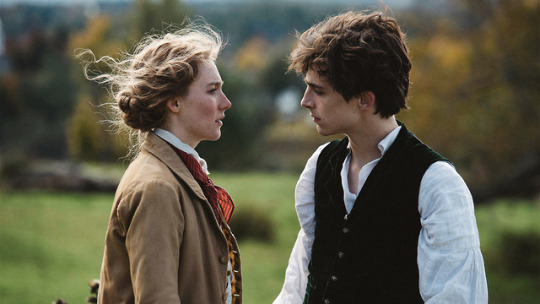
Ranking Little Women.
“This is a film not about a single woman’s quest for identity or independence, but about the infinite power of a woman’s community.”
Letterboxd is humming with Little Women Cinematic Universe energy, particularly since the trailer for Greta Gerwig’s new version, with its cast pulled straight from the Letterboxd Year in Review, dropped.
“I have a guttural five star type of feeling after the trailer,” writes Leia. “Bi culture is thirst-watching this for Timothée Chalamet and Florence Pugh,” Raph enthuses.
Yeah, we see you watching and re-watching all the previous film adaptations of Louisa May Alcott’s landmark 1868 novel that you can fix your eyeballs on. We’re not ones to doze by the fire; we like adventures. So let us take you on a romp through past Little Women screen adaptations, in which we rank the productions based on our community’s stantastic response to each.

From left: Milton, Daisy & Ruby.
Little Women (1917) Directed by Alexander Butler
Though the March family lived in the town of Concord, Massachusetts, it was the British who got to the beloved American book first, with this silent film adaptation.
Starring Ruby Miller as Jo March and musical-comedy star Daisy Burrell as Amy March, the film is considered lost, so nobody on Letterboxd will ever be able to confirm how the prolific English actor Milton Rosmer stacked up as rich-boy-next-door Theodore ‘Laurie’ Laurence.
Letterboxd ranking: #7.
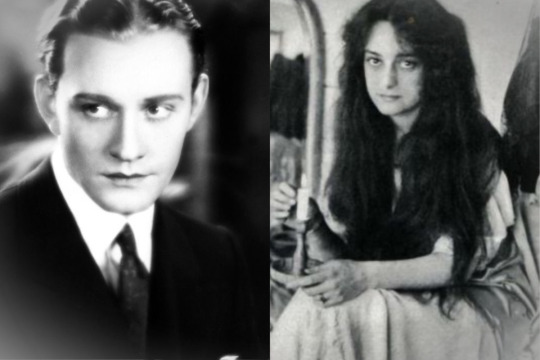
Conrad Nagel & Dorothy Bernard.
Little Women (1918) Directed by Harley Knoles, screenplay by Anne Maxwell
Also considered lost is the first American adaptation, by the brilliantly named Harley Knoles, a British director who spent the 1910s working in the US. Matinee idol Conrad Nagel played Laurie.
Letterboxd ranking: #4. Jo March was played by silent film queen Dorothy Bernard, whose father hailed from New Zealand (as does Letterboxd), therefore this version ranks highly even though there are no Letterboxd ratings or reviews to confirm this fact. Instead, check out D.W. Griffiths’ dark, march-across-the-desert film The Female of the Species, in which “only Dorothy Bernard gives a believable performance” according to Michael.
(An aside: Here’s a list of unseen silent films that actually do exist, but that nobody on Letterboxd has yet seen, apparently.)
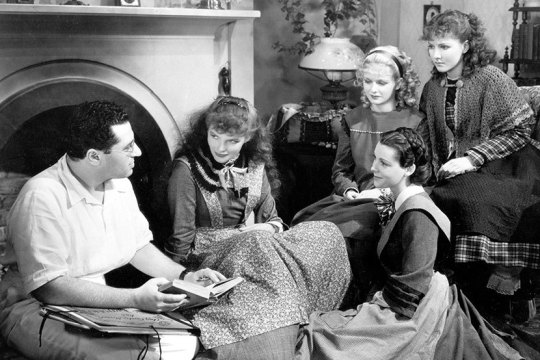
From left: George Cukor directs Katharine Hepburn, Joan Bennett, Frances Dee and Jean Parker in ‘Little Women’ (1933). / Photo courtesy MGM
Little Women (1933) Directed by George Cukor, screenplay by Sarah Y. Mason and Victor Heerman
Now we’re getting to the meat & potatoes of Little Women standom. Not that it’s a competition, but Katherine Hepburn is the one Saoirse Ronan needs to beat. Hepburn set the screen standard for gutsy portrayals of Jo March, and appropriately so in this first version with sound because let’s be honest, when the world got to hear Jo March speak those lines aloud for the first time, Hepburn’s voice was the perfect choice.
The prolific Cukor was nominated for the best directing Oscar (he eventually won one in 1964 for My Fair Lady), but it was the screenwriters, married couple Mason and Heerman, who won the Academy Award for their script. (Hepburn also won that year, but not for playing Jo March.)
Letterboxd ranking: #3. “A true gem of depression-era cinema,” writes Taj. “Every single scene in the first half of this film is a pure delight.”
“I’d like to personally thank Katharine Hepburn for being absolutely perfect,” writes Skylar. Morgan concurs: “Hepburn plays Jo with a rough physicality, bold confidence, and a gentle sensibility, standing out in a rather unremarkable movie.”

June Allyson and Rossano Brazzi.
Little Women (1949) Directed by Mervyn LeRoy, screenplay by Sally Benson, Victor Heerman, Sarah Y. Mason, and Andrew Solt
Why re-write a script that’s already perfect? Mervyn LeRoy’s 1949 Technicolor update lifted most of the screenplay and music from Cukor’s version, throwing in an on-trend acting line-up of June Allyson (Jo), Janet Leigh (Meg), Elizabeth Taylor (Amy) and Margaret O’Brien (Beth).
Never mind who played Laurie in this version (okay, okay, it was hunky Rat-Packing socialite Peter Lawford); the real tea here is the American film debut of Bologna-born Italian great Rossano (The Italian Job) Brazzi, as Professor Bhaer.
Letterboxd ranking: #2. “This is the best Little Women, fight me,” DylanDog declares. “I’m so impressed by the fact that they rewrote/restructured/padded out the 1933 screenplay, assembled a nearly pitch-perfect cast, and made such a fantastic Technicolor remake,” Dino reasons. “We actually see way more of the novel’s subversive gender politics play out here, and Jo’s motivations are much more palpable.”
“Although I also really like the 1933 version, the Hepburn film lacks the warmth I do find in the 1949 adaptation,” Annewithe writes. “I feel that this version conveys the true spirit of the book and is as cozy and warm and loving, and it’s in colour!”
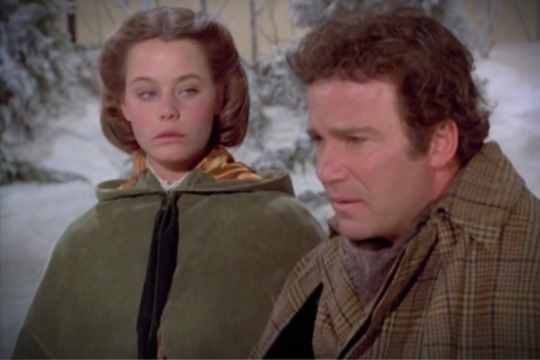
Susan Dey and William Shatner.
Little Women (1978) Directed by David Lowell Rich, screenplay by Suzanne Clauser
Between 1949 and 1994, all we got was this seventies miniseries adaptation, which flies far under the radar of Letterboxd’s Little Women obsession with only two member reviews.
Susan Dey was a smart choice to play Jo March, given her Partridge Family profile at the time, while Meredith Baxter Birney, who played Meg, went onto huge sitcom fame as Michael J. Fox’s mom in Family Ties. The real curiosity factor here, writes LouReviews, is “the casting of one William Shatner as the Professor, and he’s rather good!”.
Letterboxd ranking: #6. “This story keeps moving me,” is all Sandra had to say, while LouReviews writes “not essential by any means, but if you like the novel, you'll want to see this”.

Winona Ryder and Christian Bale.
Little Women (1994) Directed by Gillian Armstrong, screenplay by Robin Swicord
It only took 126 years from publication for a woman to get behind the camera of a Little Women film, despite Alcott’s masterpiece long being a prime example of (white privileged) female complexity in storytelling. (Although, it’s fair to note that women have been involved in the scriptwriting for every Little Women film adaptation that we know of.)
Released—as Gerwig’s 2019 update will be—at Christmas, Gillian Armstrong’s version was as star-studded as they come, with 90s it-girl Winona Ryder—fresh off Reality Bites—as Jo March, and Christian Bale as Laurie. Also: Kirsten Dunst, Samantha Mathis and Eric Stoltz, with Susan Sarandon as Marmee.
Letterboxd ranking: #1. Sydney writes: “It’s really tough dealing with the fact that this movie is probably never going to get the respect it deserves.” Well Sydney, we’re happy to make your day. This Little Women is currently the highest-rated on Letterboxd (except for Bale’s facial hair, which is not highly rated by anyone). Thomas Newman’s score is much beloved, and the film is, in Julia’s opinion, “the definitive adaptation!”.
On a recent re-watch, Lauren “was transported back in time to my childhood and for those two hours everything felt simple and safe.” Meanwhile Sally Jane Black, in a thoughtful piece, gets right to the heart of Little Women-love: “This is a film not about a single woman’s quest for identity or independence, but about the infinite power of a woman’s community.”
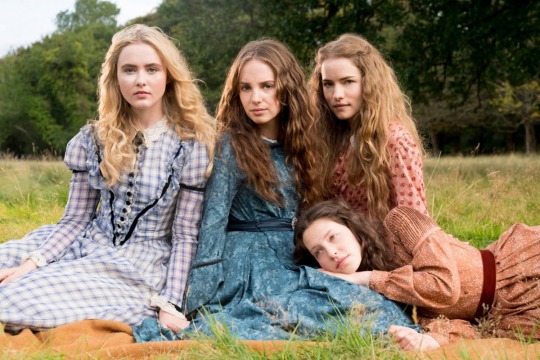
Little Women (2017) Directed by Vanessa Caswill, screenplay by Heidi Thomas
Not strictly a film, but well worth a mention, this recent three-part BBC adaptation stars Thurman-Hawke offspring (and Once Upon a Time... in Hollywood flower child) Maya Hawke as Jo March. Emily Watson plays the March matriarch, and—Gerwig connection alert!—Kathryn Newton (Lady Bird’s Darlene) is Amy March.
Letterboxd ranking: #5. Alicia is a fan: “Winona will always be my Jo, but Emily Watson absolutely kills it as Marmee! Just love her FACE!!!! Her pain is your pain; her joy is your joy. Oyyy!”
Bethchestnut was slowly convinced: “A very handsome and loving production, even if there were a lot of things that bothered me about it. Doesn’t help that I watch the 90s version every year. Still made me cry twice.”

Little Women (2018) Directed by Clare Niederpruem, script by Clare Niederpruem and Kristi Shimek
Released to mark the novel’s 150th anniversary of publication, this version wins points for casting Lea Thompson (Howard the Duck, Back to the Future) as Marmee, but loses points for the weird contemporary update, in which the March sisters inexplicably lose the messy complexity of their far more adventurous 19th-century selves.
Letterboxd ranking: #8. “Who decided casting Ryan from High School Musical was a good idea?” asks Sue.
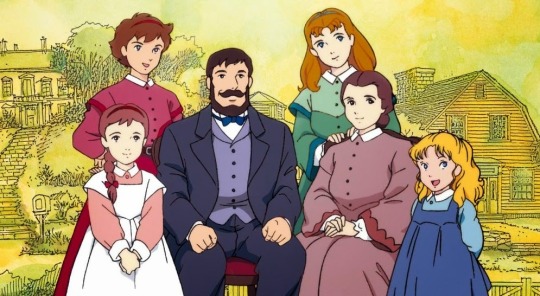
Also worth seeking out: two different Japanese anime adaptations, the 1981 series Little Women’s Four Sisters (若草の四姉妹), and the 1987 series, Tales of Little Women (愛の若草物語), which aired on HBO in 1988 and is notable for writing in a black character. Not worth a mention: this 1970 TV adaptation.
Greta Gerwig’s ‘Little Women’ opens in cinemas this December.
#little women#greta gerwig#timothee chalamet#saoirse ronan#florence pugh#meryl streep#winona ryder#katherine hepburn#letterboxd
12 notes
·
View notes